Dear Readers, Whether for in between, before sport, or as a party snack: peanuts are extremely popular. There are still numerous myths about the actual legume. Although peanuts are high in calories, they are healthy in many ways and can even prevent diseases. You can find out everything you need to know about peanuts here.
If you get cravings after exercise, or you’re looking for healthy snacks during the learning phase, we have the right food for you: the peanut.
In moderation, it has an extremely positive effect on your health and your learning success. You can find out why this is the case below.
Interesting facts about the peanut
The peanut plant originally came from South America, but today it is cultivated in many parts of the world.
It is therefore more closely related to soybeans, peas, and beans than to cashews or walnuts. Nevertheless, the fruit is counted in the nut category: its nutritional profile, especially the fat content, is more similar to nuts than legumes.
Peanuts are known to trigger allergic reactions. In fact, they are among the foods that have a particularly high risk of allergies.
Therefore, allergy sufferers should always carefully study the packaging instructions for processed products. For everyone else, the peanut is an extremely healthy snack. Among other things, it is said to prevent cardiovascular diseases and have a positive effect on cholesterol levels.
Peanuts not only taste good raw but are also processed as peanut butter, flour, or oil.
Where peanuts grow
As the name suggests, peanuts do not grow on trees or shrubs. Rather, they are fruits of the earth. First, the peanut plant grows above ground, just like beans and peas.
Once the flower has withered, the stems will lengthen and eventually curve downward until they grow back into the soil. Finally, the seeds of the plant form deep in the earth: the peanuts.
Ingredients of peanuts
Like other nuts, the peanut is particularly rich in fat. This makes up almost 50 percent of their content. So it’s no wonder that peanuts are a real calorie bomb.
Nevertheless, this is not bad per se: Most compounds are based on monounsaturated and polyunsaturated fatty acids.
In addition, the peanut contains various vitamins, fiber, and a wealth of antioxidants. There are also minerals such as iron, phosphorus, potassium, and calcium.
This is what the ingredients in the peanut do:
Vitamin E: Also known as the anti-aging vitamin, vitamin E is responsible for numerous processes in the body.
It protects the skin from negative environmental influences, among other things, because vitamin E is one of the so-called antioxidants.
It thus prevents free radicals from destroying healthy cells and, for example, prevents premature skin aging.
Biotin: This vitamin from the B complex has a positive effect on skin, hair, nails, and metabolism, among other things.
Magnesium: This mineral is extremely important for a healthy nervous and muscular system. Among other things, it protects against heart disease.
Calcium: Calcium is involved in numerous processes and is found in high amounts
Nutritional values and calories of peanuts
Peanuts are primarily considered healthy – even if they have a relatively high number of calories. It is only important that you always enjoy them in moderation, especially if they have also been roasted and salted. Below you will find a nutrient table with selected ingredients.
Peanuts are so healthy
Like any food, you should always enjoy peanuts in moderation. Only a balanced and healthy diet guarantees that you feel fit and powerful.
If you haven’t already, be sure to include a variety of seeds and nuts in your diet. A handful of peanuts a day can already prevent numerous diseases. You can find out how the healthy nut works below.
Suitable for diabetics
Peanuts are particularly interesting for people suffering from diabetes. With just under seven grams per 100 grams of fruit, the peanut is relatively low in carbohydrates.
In addition, it has a low glycemic index. This index serves as a measure to determine the effect of carbohydrate-containing foods on blood sugar levels.
After eating peanuts, this increases only slowly and the body produces less insulin.
Protein-rich
Proteins are very important for the body because they fulfill numerous functions in the organism.
They not only protect against microorganisms but are also needed to build up collagen and help muscles to move.
With more than 25 grams of protein per 100 grams of nuts, the peanut is one of the protein leaders, even among nuts.
Incorporating a handful of nuts into your diet every day can help meet your daily protein needs.
For strong nerves
Whether it’s yoga, boxing, or bouldering. Anyone who is active in sports needs a lot of energy. The same also applies to mental exertion, for example in the office or during the exam phase.
Peanuts contain a lot of magnesium. You need this mineral for a healthy and strong nervous system. This is the only way you can push your body to its sporting limits and protect it from stress.
But what’s more, in a study at the Loma Linda University Adventist Health Science Center in California, scientists found that certain nuts can stimulate brain frequencies.
This creates so-called gamma waves in the brain, which are involved in information storage, perception, and the learning process, among other things. In addition to almonds, cashews, pistachios, and walnuts, the peanuts, in particular, stand out in the activation.
For the prevention of cardiovascular diseases
It may sound contradictory, especially since the peanut is 50 percent fat.
However, several independent studies have found that peanuts can reduce the risk of various cardiovascular diseases, such as stroke and heart attack.
A few grams of nuts a day are enough to better protect the cardiovascular system.
A 2017 Harvard study found that more than 200,000 participants who ate portions of peanuts several times a week reduced their risk of cardiovascular disease by as much as 13 percent.
Of course, you should not overdo it with the consumption. 10 to 15 grams of peanuts daily are already sufficient for a positive effect.
Lowers cholesterol levels
Peanuts are not only good for the heart, but they also have a positive effect on high cholesterol levels.
These results are also from a study in which the subjects ate exactly 56 grams of peanuts every day for four weeks. The total cholesterol level of the subjects could be reduced.
But not only that: The participants also showed a reduced LDL value. This “bad” LDL cholesterol is responsible for the narrowing of the blood vessels.
The reason for these effects is the fats in the peanut. After all, they are made up of healthy mono- and polyunsaturated fats, which can lower LDL levels in the blood.
For a peaceful sleep
Whether it’s an upcoming exam or a stressful day at work: some situations can keep you pondering for hours and even rob you of sleep.
Although sleeping pills are a quick help, they are neither good for the body nor for the ability to concentrate the next day.
Natural foods, medicinal plants, and essential oils, on the other hand, can work wonders.
One of the foods thought to promote sleep is the peanut. This is due to the tryptophan it contains, an essential amino acid that the body cannot produce itself but needs to live.
Because without tryptophan, your body cannot produce the hormone melatonin – and that is exactly what makes you tired and fall asleep.
Of course, if you have severe problems falling asleep, not having a portion of peanuts in the evening will help you either. Rather, you supply your body with the important amino acid in the long term. If you are suffering from your insomnia, you should consult a doctor.
Supports weight loss
Even if they contain a lot of fat: Don’t eliminate peanuts from your diet if you want to lose weight. Contradictory though that may sound, a lot of research suggests peanuts make it easier to lose weight.
That can have several reasons. The nuts fill you up extremely quickly and, thanks to the slowly rising blood sugar level, also prevent unwanted cravings.
One study examined the weight behavior of subjects who regularly consumed nuts, including peanuts, over a period of five years. They ended up having a five percent lower risk of becoming overweight during the study period.
If you want to lose weight, you should only buy unprocessed peanuts. Salty and roasted products, on the other hand, have a rather bad effect on your body. Also, keep in mind that a few grams a day are enough; you shouldn’t eat a whole pack of peanuts.
Risks of peanuts: Allergic reactions
Many people are affected by an allergy, whether to grass, dog hair, or food.
A peanut allergy is particularly common, especially in Western countries. 1.5 to 3 percent of all children are affected.
An allergic reaction can be very different. While some sufferers only get a mild skin rash, peanut consumption can lead to circulatory collapse and even organ failure in others.
The common occurrence of peanut allergies in Western countries is probably due to the fact that the nuts are roasted.
This process changes certain proteins by transforming them. Initial studies indicate that early sensitization of children reduces the risk of allergies.
Use peanuts in the kitchen
The popular snack is available in countless variations: raw and untreated, salted and roasted, or mixed with other nuts. Peanut butter and peanut oil are just as popular as the snack. Here’s what you need to know about these uses.
Peanut oil
There are two types of peanut oil: extra virgin and refined. The former is much more flavorful and also contains all the healthy nutrients that are also found in peanuts.
The oil contains a particularly large amount of vitamin E: there are around 24 milligrams of the vitamin in 100 grams of the product. Vitamin K, important for blood clotting and bone structure, is also found in cold-pressed peanut oil.
In contrast to sunflower oil, for example, this oil has many monounsaturated and polyunsaturated fatty acids that have a positive effect on your heart health. Its smoke point is over 230 degrees Celsius.
This makes refined peanut oil ideal for frying, boiling, grilling, and deep-frying. Cold-pressed oil refines nutty salads, dips, sauces, and marinades.
You can also use peanut oil for body care. The vitamin-rich oil ensures shiny hair, beautiful skin and combats dry lips.
Peanut Butter: Not as healthy as peanuts
Peanut butter not only tastes good, it can also be used in many ways. It contains all the important nutrients that make peanuts so healthy.
But there is much more besides. Peanut butter, for example, contains a lot of salt and vegetable oils with trans fats that can even inhibit the protective effects of the peanut.
Therefore, you should always consume peanut butter in moderation and not overdo it.
If you don’t want to do without it, you can also make your own peanut butter – in a healthier variation.
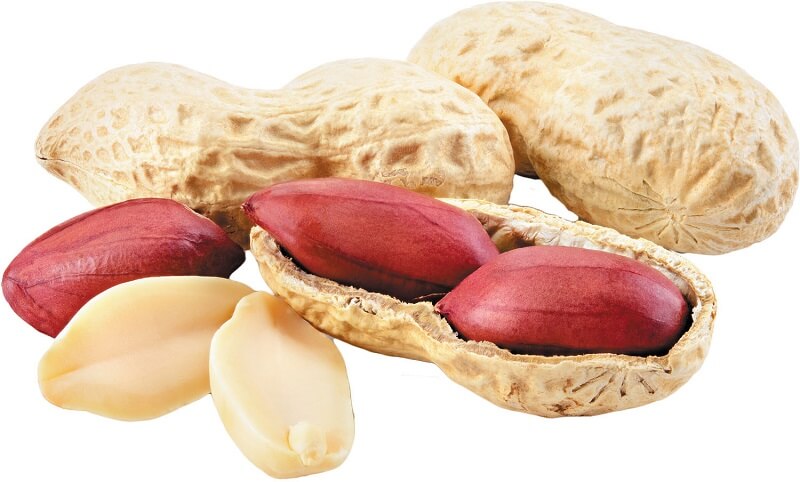
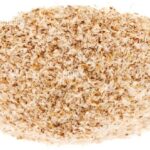

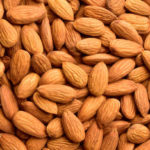
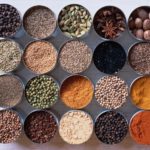
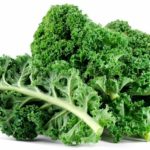

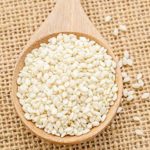





Leave a Reply